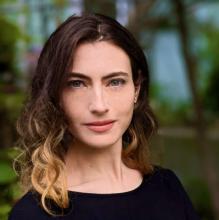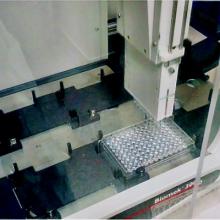Virginia (Ginny) Pichler
Why did you decide to pursue a graduate degree?
I previously completed a master's degree and found after working for a few years outside of academia that I still had ambitions to answer critical questions in research. As for many of us, the more years I spent edifying myself, the more I realised how little I truly knew. Pursing an additional graduate degree felt like the right choice to not only continue developing my own knowledge but to meaningfully contribute to the global infectious disease control effort.
Why did you decide to study at UBC?
The events that led me to pursue my PhD at UBC deviated from the typical path. I was looking to re-enter the research sphere and took an independent course at UBC to re-enmesh myself in the field. At the termination of the course, I spoke with the coordinator who kindly bridged the introduction to my initial supervisor, Dr. Jennifer Gardy, at the B.C. Centre for Disease Control. I was keen to work with Dr. Gardy on infectious disease genomics and our conversations culminated in her encouraging me to apply to be her PhD student and the rest is history! I feel especially fortunate that becoming a graduate student at UBC has allowed me to develop my research project in connection with BCCDC programs and reach beyond academia for public health impact.
What is it specifically, that your program offers, that attracted you?
I belong to the Department of Microbiology and Immunology and am co-supervised by one member within the department (Dr. Yossef Av-Gay) and the other in the Department of Bioinformatics (Dr. William Hsiao). This has allowed me to combine sequencing-based bioinformatic strategies and experimental work, so I may design and execute my research from the discovery phase through to the applied analytical phase. Though often these aspects come together collaboratively in research, it is a rarity to be able to don both an experimental microbiologist and a bioinformatician hat in one project and so I am thankful that I may pursue both.
What was the best surprise about UBC or life in Vancouver?
I have been pleasantly surprised by the support I have found within my work environment in the Life Sciences Institute (LSI). There are several aspects of my research which are undertaken independently, but across the network of laboratories in the LSI, many key individuals have donated their time and expertise that have immensely aided my progression.
What aspect of your graduate program do you enjoy the most or are looking forward to with the greatest curiosity?
My project has been developed in tandem with BCCDC programs and as such, I most appreciate the collaborative opportunities made available within UBC and beyond. My natural curiosity has me always pursuing new arms of research, different methods and novel approaches to answer a research question. I have already benefited from the networks within UBC and the BCCDC to pursue collaborations with other institutes and researchers, which I feel has meaningfully added to the impact and quality of my work as well as my own personal development.
What aspects of your life or career before now have best prepared you for your UBC graduate program?
The variety of experiences in my academic and professional career prior to joining UBC has been fundamental to my success in my PhD. I completed a BSc at the University of Toronto and MSc at the University of York, both in the field of bioarchaeology. While there are aspects that overlap with my current research, the strategies and standards of the fields differ, which I believe has allowed me to approach problems with a diversity of perspectives. I also worked in professional environments between each of my degrees, which helped me gain an appreciation for the applicability of research outside of academia. I firmly believe these hiatuses between degrees were invaluable and gave me the space to consider my future aspirations and explore my reasons for continuing studies.
What do you like to do for fun or relaxation?
I am an avid gardener and baker. Popping out into the backyard to visit my plant pals helps break up long stretches in front of the computer. I am also very grateful for my lab mates and colleagues who continue to graciously receive and humour my, at times, excessive baking output.
What advice do you have for new graduate students?
All new graduate students should know that the experience is not always linear, not always optimal, and not always illustrious. There may be longer-than-desirable stretches of hurdles and pitfalls, but that is something we all face. It's the unglamorous, yet invaluable part of developing as an independent researcher. Don't let these periods overshadow the achievement of becoming a graduate student and any others that punctuate your degree.

